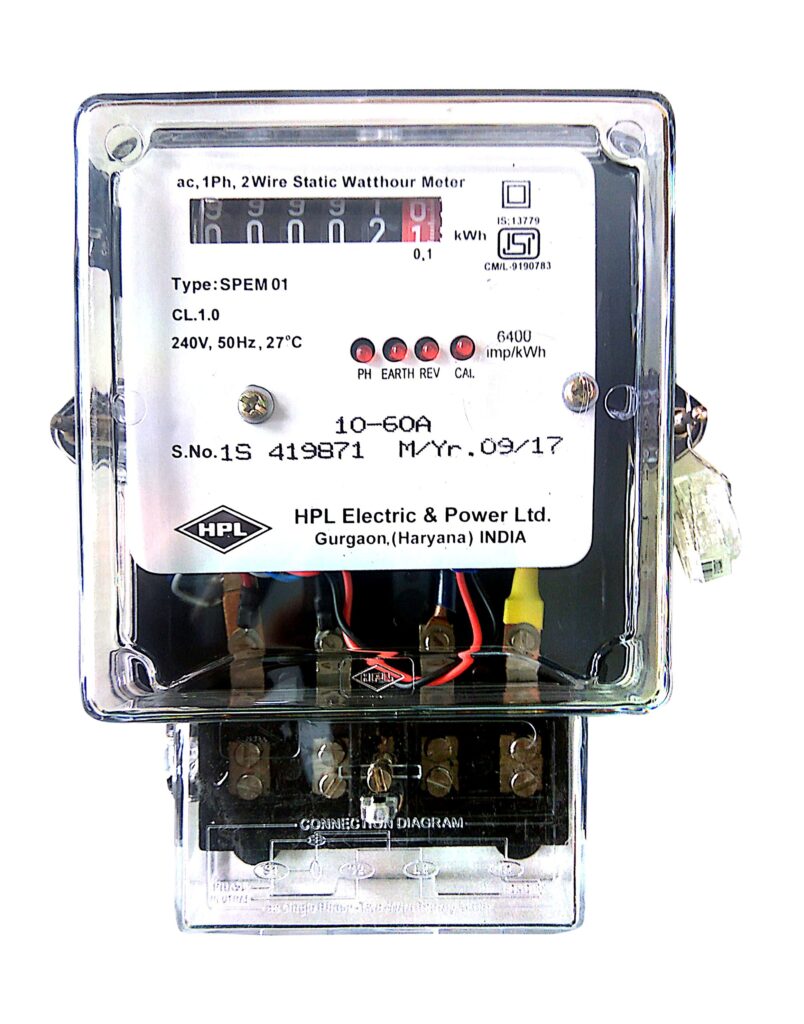A Solar kWh Meter is a device that measures the total energy (in kilowatt-hours) generated by a solar power system. It helps track the system’s performance, monitor energy production, and assess electricity consumption, enabling users to optimize energy use and ensure accurate billing or crediting.
Key Functions:
1. Energy Measurement: Accurately measures the amount of solar energy produced by the system.
2. Performance Monitoring: Helps track and analyze the efficiency of the solar panels.
3. Grid Integration: Monitors energy fed into the grid for net metering or credit purposes.
4. Energy Consumption Tracking: Provides insights into the energy consumption of the household or business.


Types of Solar kWh Meter:
- Single-Phase kWh Meter
- Description: Designed for residential solar systems with single-phase electrical supply. It measures the energy produced or consumed by the system.
- Best for: Small residential solar installations.
- Three-Phase kWh Meter
- Description: Used in larger residential, commercial, or industrial solar systems with a three-phase electrical supply. It tracks the energy generated and consumed across all three phases.
- Best for: Medium to large-scale installations or businesses.
- Net Meter
- Description: Measures both the energy produced by solar panels and the energy consumed from the grid. It allows for net metering, where excess energy is fed back into the grid for credit.
- Best for: Systems with grid-tied configurations, enabling users to track energy credits and consumption.
- Bi-directional Meter
- Description: A type of net meter that tracks both the energy consumed from the grid and the energy fed back into the grid, supporting net metering and energy credits.
- Best for: Solar systems connected to the grid with net metering agreements.
